This Women’s History Month 2023, I am saluting Texas Highways magazine for its ongoing commitment to creating editorial opportunities for Black women journalists, such as me. Thank you, Matt Joyce, my former editor, for opening this wonderful opportunity to me! Joyce was a patient editor and he helped me learn the nuances of reporting in the “as-told-to” format. When I needed journalism work, Texas Highways contracted me to report substantial assignments, including fact-checking gigs and web stories. Moreover, I landed and contributed to a range of projects, including traveling to Terrell, Palestine, Abilene, and Kaufman for “My Hometown” profiles.Last fall, I trekked to Kaufman to interview Hector Torres for Texas Highways' February 2023 issue. I discovered that Kaufman was a friendly place, and Torres’ rich life story was bonded with loving-familial connections, self-empowerment, business leadership, and civic power. I am using my journalism experience to build a new foundation and to earn a doctoral degree in history at the University of North Texas. My goal is to become a professor in African American history in Texas. Furthermore, Joyce championed my graduate history studies by writing recommendation letters. I started my graduate studies in 2021 at UT Arlington thanks to scholarships from Dr. W. Marvin Dulaney. I am pursuing this degree because of the encouragement from my late mentor and former Abilene Christian University media law professor, Dr. Charlie Marler. View my other Texas Highways' work here
0 Comments
Black History Month 2023 Salute: Celebrating New Mount Zion Baptist Church of Dallas, Texas, Inc.2/11/2023 Quick Facts |
By Ron Hadfield | Download the .PDF from the memorial serviceand his parents smile. His teacher, Peggy, was an uncompromising editor, but a loving one, and one of Tanner’s earliest encouragers that he become a writer, which he has. |
The Marlers shared Charlie’s 89th home-cooked birthday lunch with me last month, a feast including two of his favorites: barbeque pork ribs and a decadent chocolate cake. The conversation was candid and comforting, and it reminded me of moments years ago around the same table between this college student and two of the most godly people I’ve ever known.
Charlie Marler was my college professor, my professional mentor and my Texas Father, and not always in that order. I did not aspire to be a college professor, but in most other ways, my journalistic apple, so to speak, did not fall far from his tree.
By task and by default, we have found ourselves serving as unofficial historians for Abilene Christian, for a combined total of more than 100 years, a number I have a hard time grasping.
That’s a privilege and a responsibility we enjoyed but took seriously: a blessing with, at times, a heavy yoke. In short, we learn about our shared alma mater, store the facts where others can hopefully find them later, and tell stories about its people and moments that matter most.
Together, we have worked across the street at a place where the late, great academic dean Walter H. Adams once said he was a member of the church, at the institution where he was worth more to the church than anywhere else. We saw our work that way, as mission and vocation.
For just short of 40 years, I have had the often unenviable task of proofing and editing the best editor I knew.
Early on, I felt like the relief pitcher waiting in the bullpen to follow Mariano Rivera, the nearly infallible and eventual Baseball Hall of Fame closer who wrapped up wins for the New York Yankees: When Mariano and Charlie were through being great at what they do, there was not much meat left on the proverbial barbeque pork rib.
Even at the end of his eighth decade, Charlie could work circles around most people half his age. His work ethic, like my own parents, has been an inescapable inheritance. Before his stroke and fall last week, he likely was online, at age 89, researching something to benefit his latest project for me or his own interest on ACU’s behalf.
Over time, kinks began to show in his armor, thanks to failing vision, a slightly leaky memory and the challenge of keeping up with "Associated Press Stylebook" editors who changed their mind on punctuation and usage like most of us change our socks.
But he genuinely appreciated the extra set of eyes I brought to our relationship, and we regularly exchanged drafts of our work. I sought his counsel on difficult days, and he always wanted to know what was new in my world. Over time, my professor became my teammate and confidant.
He never stopped being a champion of free speech yet always defended, even demanded, the truth be told as well.
Ours was not unlike the relationship I came to enjoy with the late Dr. John C. Stevens, ACU’s eighth president and another unofficial historian who spent half a century on campus as professor and administrator. The three of us collaborated on two history books, and on projects small and large, including those for an ambitious Centennial that took decades to plan, 12 months to celebrate and years to recover from.
The ironies never failed to awe me. Dr. Marler was the newspaper advisor and Dr. John the president during my college days and two tours of duty as editor of The Optimist. I probably kept both of them on their toes with investigative stories and youthfully enthusiastic editorials that took no prisoners. Years later, though, I found myself as Stevens’ golf partner many Saturday mornings and the rest of the time, as Charlie’s storyteller sidekick.
Dr. John and Dr. Marler, fellow members of this church, each died in the month of May, now 15 years apart. My memories of them, like those described so eloquently by James Earl Jones in the iconic baseball film "Field of Dreams," are so thick today that I, too, have to brush them away from my face.
Mitch Albom, the best writer in my hometown of Detroit – and most other hometowns – wrote a top-selling book several years ago titled "Tuesdays With Morrie," a touching account of the time he spent with a beloved former college professor dying of Lou Gehrig’s disease. In the final chapter, Albom asks:
Have you ever really had a teacher? One who saw you as a raw but precious thing, a jewel that, with wisdom, could be polished to a proud shine? If you are lucky enough to find your way to such teachers, you will always find your way back. Sometimes it is only in your head. Sometimes it is right alongside their beds.
The teaching, Albom says, always goes on.
The last few years, I was fortunate to have regular meetings over lunch with Charlie, in addition to countless calls from his cell phone, which made me laugh because caller ID showed each to be from “Sweetwater, Texas” although he was never there. We met on other days as well, depending on Peggy’s trips to the hairdresser or lunches with her friends.
I told myself those gatherings were my Mondays With Marler, although there was no impending health issue, only sacred time with a mentor who had increasing trouble – like many of us as we age – getting up and down from his chair. His mind was as sharp as his wit.
For some reason, I had the overwhelming thought during the most recent lunch that it might be our last, and it was. That particular Monday With Marler was a bright day, the grass never greener and roses never more red outside the windows in the sun room where he worked and held court with me, and for years before, with students on Fridays in his Opinion Writing class.
Dr. John would often exclaim the words, “We shall not see his like again!” on more than one occasion about a passing dignitary or world leader, a paraphrase of Shakespeare’s famous line in Hamlet. Truer words were never spoken about each of them, as I shall not see their likes again, these two people who shaped me like no others.
With Charlie’s passing, the circle of unofficial historians for this university has become uncomfortably small. Thankfully, my life and work have been enriched by these two exacting but benevolent giants who shared their knowledge, took the time to know me and envision me at my best, and showed me the way there.
Especially this dear man and mentor, my Texas Father, whose teaching goes on.
Learn More:
Dr. Cheryl Mann Bacon Celebrates the Life and Legacy of Dr. Charlie Marler
Journeying Through Grief: The Death of My Mentor, Dr. Charlie Marler
My journalism professor, mentor, and guiding light, Dr. Charlie Marler, died May 27, 2022, and I am creating a series of blog posts about the impact he had on my and his other former students’ journalism and media careers. I am bringing his colleagues and others into the conversation as well. In this post, I share the text of Dr. Cheryl Mann Bacon's remarks from the Celebration of Life service, held June 1, 2022, at the University Church of Christ, Abilene, TX.
Third Post: Dr. Cheryl Mann Bacon's Remarks at Dr. Charlie Marler's Celebration of Life Service, June 1, 2022
Download the .PDF from the memorial service | By Dr. Cheryl Mann Bacon |
Charlie was my teacher. He chaired my master’s thesis. He hired me to be his graduate assistant and to the JMC faculty. He was a part of the faculty I led when I succeeded him as chair. He was my elder, mentor, editor and friend.
He concluded his post with four things he thought were important:
• the love of civil discourse
• a passion for the First Amendment
• writing well and teaching others to write well
• and being a good mom.
In the dozens of tributes from former students this past week, variations of those same themes emerged over and over.
Paul Anthony, a former Optimist editor who’s now a doctoral student himself, recalled a conversation in Doc’s office when he was working through his views on some difficult topics.
He said Doc “never felt the need to make clear his own position. He knew that what I needed was an ear, not an opinion. The result was that I came away from those talks a more tolerant, more compassionate, more open-minded person.”
That was typical. Charlie had no patience for shallow thinking, but he loved a challenging conversation with students or colleagues who might disagree with him – so long as they were thoughtful, had their facts right, and could be civil about it.
Many students described that civility as kindness. The student who was struggling to pass received exactly the same kindness as the one he was encouraging to go to grad school, which he did frequently.
He often paraphrased Deuteronomy and said we must teach our students in the classrooms, the halls, the labs, our offices, the sidewalks, the parking lots and our homes. His civility and kindness were like that, too. Everywhere and at all times.
Then there was his passion for the First Amendment.
I remember him vividly describing his visit to James Madison’s grave on the grounds of Montpelier, in Virginia. When I had the chance to visit there a few years later and stood in that small family cemetery, I could just imagine the conversation that must have transpired in Charlie’s mind as he stood by the grave of his hero.
Charlie understood that nothing else about our Constitutional form of government works if we fail to honor and protect those freedoms – of religion, speech, the press, and the right of the people to assemble and petition for redress of grievances.
Fact: Dr. Marler was inducted into the Texas Intercollegiate Press Association's Hall of Fame in 2003
He believed passionately that all truth is God’s truth – and if the truth is hidden or suppressed, then we cannot make informed decisions –about government, or religion, or life. And he was all about making informed decisions.
That passion inspired his philosophy of student journalism, which demanded absolute excellence of his students --- and occasionally drove university presidents absolutely crazy.
But he believed that if we want students to go out into the world prepared to speak truth to power, well then they have to practice it -- here, now and unfettered.
His Optimist staffs consistently rose to the occasion because they knew he would go to the mat for them – and because disappointing him was unthinkable.
At the heart of not disappointing Charlie was writing well. Professional journalists all over the country hear Doc’s voice in their ears when they recall that
• a lot is two words
• that and which are not interchangeable
• redundancy wastes the reader’s time
• concision doesn’t mean short – it means the shortest path to understanding
• Always cite your sources
• And my personal favorite – avoid dead construction.
Now, my friend Cole Bennett tells me that ‘dead construction’ is not a grammarian’s term. They call passive constructions like ‘it is’ and ‘there are’ etc., ‘expletives’. But Charlie called them dead. I know this, because when he returned my 40-page graduate Comm Law paper I got a 98. Not a 100, because somewhere on about page 23 I had used “It is” one time, and there in bright red capital letters, underlined twice, were the words: AVOID DEAD CONSTRUCTION.
The analogy merits chasing just a bit. He called it dead because excellent writing should never have a vague subject and a passive verb. Excellent writing, and an excellent Christian life should be focused, vibrant and alive.
Finally, Charlie wrote to me in that post about being a good mom. Anyone who was around Charlie for even a little while knew that he adored Peggy, and he loved being a dad, and a grandfather. He could not talk about family without his trademark twinkle. Great journalism was important. Family was more important.
Lance Fleming, in his tribute last week wrote that when he sought Doc’s advice about a job change, “He agreed that my time on the road was better spent being at home with Jill, Ashley, and Ryan.”
For two years, Doc and Peggy had prayed every day for Rex, Lance and Jill’s oldest son, and for two years Doc ended every email or text to Lance with the words, “God, please kill Rex’s cancer.”
On the morning after Rex died, Lance had this message from Doc.
“Wow, God is good. Rex is healed forever; you guys now have an even more special connection to heaven,” he wrote. “You know hope is real. You will be finding new ways to touch Rex every day.”
So to Peggy, David, Todd, Scott and all the Marlers – and to all of us, I close with a very careful edit of Charlie’s own words:
“Wow, God is good. Charlie is healed forever. We now have an even more special connection to heaven. We know hope is real, and we will find new ways to hear Doc’s words in our ears every day.”
Learn More:
Journeying Through Grief: The Death of My Mentor, Dr. Charlie Marler
Mourning the Death of Dr. Charlie Marler, My ACU Professor and Mentor
My journalism professor, mentor, and guiding light, Dr. Charlie Marler, died May 27, 2022, and I plan to write a series of blog posts about the impact he had on my and his other former students’ journalism and media careers.
Second Post: Searching for Healing, June 4, 2022
I attended the June 1, 2022, Celebration of Life service (download the searchable .PDF). I offered my condolences to Peggy Marler and the rest of Dr. Charlie Marler’s family and colleagues at Abilene Christian University in Abilene, Texas. Each speaker trumpeted Marler's commitment to his family, academic scholarship, his faith, and the Abilene community through meaningful anecdotes and his favorite scripture in Philippians. I plan to post the text of some of the speakers' remarks as I receive them. |
Furthermore, this week, I visited ACU’s Journalism and Mass Communication Department to search for healing of my grief through conversations with members of the JMC community and to celebrate my days as a former KACU announcer/JMC student. Meeting some of the current students and staff, as well as touring classrooms, offices, ACUTV, and the Morris+Mitchell student agency contributed to my healing journey. As the first Black person and the first woman to receive ACU's Gutenberg Award, which Marler created, touching familiar ground was a smart step.
Additionally, I advanced my graduate history studies by meeting with two ACU librarians, Melinda Isbell and Laura Baker. They steered me to a wealth of resources and academic research strategies. Their invaluable guidance advanced my goal to fulfill Marler’s wish that I become a historian, specializing in African American history in Texas.
Moreover, due to a series of unplanned events, I met an ACU staffer, Evan Steele, who went out of his way to support my goals to honor Marler’s legacy, and also, become a Texas historian. Steele offered support and great foreign-language study tips, which will help me prepare for forthcoming Spanish exams for graduate school.
All in all, I received an ocean of comfort from so many people, including Susan Perry, a long-time Abilene friend who alerted me to Marler's illness, which she found out about in an email from the University Church of Christ. I am so thankful to that church for its quick email blast. Additionally, I appreciate Susan for her fast communication to me, and to her brother, Greg Perry, for his support. If it had not been for them, I would not have known Marler was sick!
Subsequently, this week was filled with overwhelming grief and loss. Nevertheless, I am navigating through the grief and charting new paths forward. Most of all, I am excited about the new people and resources that came into my life during my time in Abilene. I believe Marler had a hand in it.
Previous post in the series: Mourning the Death of Dr. Charlie Marler, My ACU Professor and Mentor
My journalism professor, mentor, and guiding light, Dr. Charlie Marler, died May 27, 2022, and I plan to write a series of blog posts about the impact he had on my and his other former students’ journalism and media careers. |
First Post: Shock and Grief, May 31, 2022
When I stepped out of a Greyhound bus in Abilene, Texas, in 1979, I was determined to earn a bachelor’s degree and become a broadcast journalist. I had no idea that one of my Abilene Christian University journalism professors would influence and redirect my career in the remarkable ways that the late Dr. Charlie Marler did. The long trip from my native Memphis, Tennessee, was a time of celebration and joy for numerous reasons. I was the first in my family to enroll in college. My family helped me pack all our hopes and dreams in the borrowed suitcases donated by my former junior high school guidance counselor, Viola O’Neil Cole, and Peggy and Geno Grandi. The Grandis gave me a part-time job during high school cleaning their East Memphis house. I had a scholarship from the Delta Sigma Theta Sorority and the blessings and prayers of my beloved parents, Rowena H. Whiting, and Prince Whiting Jr. Moreover, the Tennessee to Texas bus trip was important to the community, including members of the Southside Church of Christ, and Mary and Myron Lowery, among many others. I knew a lot of people wanted me to succeed and I planned to accomplish just that.
Marler was my Communication Law professor and at that time, chair of ACU’s Department of Journalism and Mass Communication. Before I graduated in 1983, I had landed a part-time job working in TV news at KRBC, which was Abilene’s NBC affiliate at that time. Further, I had already sold a story to CNN, which was pretty amazing for a greenhorn still in college. After graduation, I left Abilene to pursue new jobs in other states and returned a decade later to be honored with the Gutenberg Award. As time pressed forward, I kept in touch with Marler, and he shared some of the projects he was working on. Peggy Marler, his wife, always answered the phone with a kind voice and then said: “Here’s Charlie” and handed him the phone. Marler and I had long phone conversations about media-related topics, and he was always interested in my career and encouraged me.
In 2019, we had an extended conversation about being multimedia specialists, which we both were. In December 2020, he basically ordered me to go back to school to become a historian, after I told him about my just-published Texas Highways magazine stories. I followed orders and he wrote recommendation letters to support my graduate history applications.
Long-time Abilene friend, Susan Perry, alerted me May 25, 2022, that Marler was in ICU. I spoke with Peggy, and she updated me that he had had a stroke. I was sick with fear and asked her to please keep me informed. I prayed. She alerted me on May 27 via a text message that he had died. I was overcome with grief that day and inconsolable when I saw his picture on an Abilene funeral home’s website.
I am coping with my grief by writing and rereading his graduate history recommendation letters. I just completed 12 graduate hours on a part-time basis at the University of Texas at Arlington, thanks to two fantastic scholarships from UTA Professor Emeritus and Association for the Study of African American Life and History (ASALH) President Dr. W. Marvin Dulaney. Further, I was accepted into the doctorate program at the University of North Texas. Marler knew of my progress and that I planned to start the doctorate, pending the best financial aid support I can receive, this fall. I am so glad I quickly followed his orders because he predicted I could leverage my journalism expertise as he did and make a significant contribution. I plan to specialize in African American history in Texas.
Marler went above and beyond by making himself available to me and his other former students. He rejected the traditional patriarchal mindset of his generation and saw each student as capable of achieving more, and more, and more. He practiced what he preached by conducting scholarly research and continuing to write to the end of his life.
And lastly, he cared!
Please leave your comments to these questions: How did Dr. Marler impact your career and life? Have you ever experienced the death of a mentor? How did you cope?
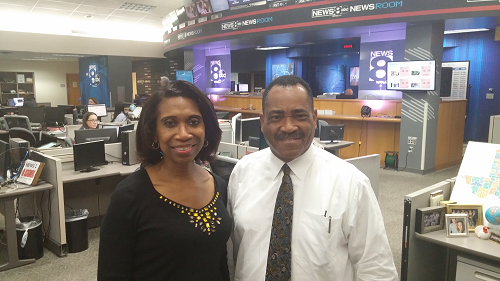 Thankful for the opportunity to work with a great journalist and leader, John McCaa, during the Dallas police ambush coverage. Photo taken in August 2016.
Thankful for the opportunity to work with a great journalist and leader, John McCaa, during the Dallas police ambush coverage. Photo taken in August 2016. I had the privilege of working with McCaa during a series of contract gigs at Channel 8 that involved the assignment desk. The best description of what working on the assignment desk is comes from one of my esteemed Abilene Christian University journalism professors, Dr. Charles Marler—it’s “like an octopus.” For example, the Desk:
• Manages day-to-day and breaking news assignments for TV news crews.
• Navigates Twitter and Facebook for updates.
• Vets information across a host of databases.
• Provides research support by phone.
My most-memorable-McCaa moment was during WFAA’s coverage of the Dallas police ambush in the summer of 2016. This tragic event brought the newsroom to a collective heartfelt loss, for all those who were killed and injured. There were other emotions that elevated us: admiration and respect for the videographers and reporters who were on the scene that fateful day, July 7, 2016. In the midst of handling logistics, gathering details of funeral arrangements and verifying other information for producers, I witnessed McCaa’s calm leadership during our team briefings.
Having worked in journalism for a variety of news organizations such as: KRBC-TV in Abilene, WPTY-TV, WLOK and WGKX radio stations in Memphis, FayObserver.com in Fayetteville, North Carolina, as well as The Associated Press in Jackson, Mississippi, and Dallas, (not to mention a wealth of freelance gigs), by far the Dallas police ambush story was the toughest to cover.
McCaa brought experience gained from other challenging assignments in his long career to this tragic event in Dallas.
He writes that retiring from television news after more than 42 years is “not easy.” However, he sensed that God “decided it was time” and he’s being obedient.
I am thrilled that my career dovetailed with his and that I gained so much from being in the newsroom during his tenure. His TV news experience, his depth of knowledge and his caring spirit elevated the environment and the newscast. Every time.
Thank you for your service. #ThanksJohn
(c) March 2019 Harvest Reapers Communications. All Rights Reserved.
This year's Gutenberg Award honorees are: Tracey Ferguson, Victoria Ahlén and Lovey Chin.
Students received insights from the following presenters:
9 a.m: "Entrepreneurial Journalism: Making Yourself the Brand"
Moderator- Kenneth Pybus, J.D.
Panel members- Regina L. Burns,Grant Rampy, Wendell Edwards and Tracey Ferguson
10 a.m: "Internships: Launching Your Career"
Moderator- Doug Mendenhall
Panel members- Victoria Ahlén, Brent Magers, Marcia Prior-Miller, Ron Hadfield, Lovey Chin and Byron Harrell
Here is the handout (.pdf), Four Stages of Your Career Diagram, that I shared during my presentation.
|
|
About the Author:
Regina L. Burns, M.A., Project+, is an award-winning multimedia editor and journalist, specializing in Black history and African American stories at Harvest Reapers Communications. Her work has been published in Texas Highways magazine, WFAA-TV, The Dallas Morning News, the Fort Worth Star-Telegram as well as The Commercial Appeal, the Tri-State Defender and The Flyer, among others.
She previously worked for a variety of news media organizations as an editor and journalist, including The Associated Press in Mississippi and Texas. She was news director at WLOK-AM and WGKX KIX-106 FM in Memphis. Learn more
Categories
All
1960s
1964 Nobel Peace Prize
1964 Republican National Convention
1968 King Assassination
1994 940 Volvo
2007 Pulitzer Prize In History
2012
2013
2018 Women's History Month Salute
2019 Women's History Month
2023 Women's History Month
4 Ideas To Support 'Motherless' Friends On Mother's Day
5 Things You Can Do NOW To Build Search Engine Optimization
AAUW
Abilene
Abilene Christian University
Abolitionist
ACU
ACU Library
Advanced Placement English
Advice Interactive Group
African American
African-american
African-American
African American History
African-American History
African American Museum
African American Women
African-American Women
Alabama
Alamo
Alice Randall
Alice Walker
Alvin Ailey
America
Ampere
Amzie Moore
Analytics
Anna Murray
Ann Arbor
Annie White
A.P. English
App
Appetite
Apps
Aretha Franklin
Asia Rodgers
Athens
AT&T
"At The River I Stand
"attitude Of Gratitude"
Audacity
Back To School
Barbara Kelly
Barbers
Belva Davis
Bernadette Coleman
Big Data
Bill Hogg
Bird
Bird Sounds
Birmingham
Birthday
Bishop T.D. Jakes
Black Enterprise
Black Hair Styles
Black Historian
Black History
Black History Month
Black History Month 2014
Black Journalists
Black Women
Bob Yates
Book
Bowling
Breaking News
Breast Cancer
Brenda Ellis
Broadcast
Brookhaven College
Brooklyn Calloway
Butter Cake
California
Cancer
Career
Carlos Baute
Cary Fagan
Cbs
Cedar Hill
Celina
Cell Phone Video
Central High School
Channel 8
Charles Whitman
Cheryl Smith
Children
Chris Bradshaw
Church Bombing
Cicely Tyson
Circle R Ranch
Civil Rights
Civil Rights Movement
Civil Rights Pilgrimage
Clients
Clothes
Cloudbaseda0f2d66592
Communication Management
Communications
Communication Skills
Conde Nast64813fceb0
Connecticut
Connecting On Social Media
Connections
Connie Dyson
Consulting
Content
Content Marketing
Cookbook
Copy Editing
Cotton Patch Cafe
Cousin Kenny
Crisco
CSI: Miami
C-SPAN
Customer Experience
Customer Service
Customer Testimonial
D
Dale Carnegie
Dallas
Dallas Advertising League
Dallas County Democratic Party
Dallas Interactive Marketing & Internet SEO/SEM Meetup
Dallas Library Branch
Dallas Public Library
Darlene Ewing
Dart Center For Journalism & Trauma
David Alan Grier
David Leeson
David Meerman Scott
D.C.
"Delta Epiphany: Robert F. Kennedy In Mississippi"
Delta Sigma Theta Sorority
Denise Mcnair
Detroit
DFW
Digital Audio
Doctor
Doctorate Degree
Dog
Don Rossi
Don't Believe The Hype Celebrity Bowl-a-thon
Dorothy Jones
Dr. Charlie Marler
Dr. Cheryl Mann Bacon
Dr. Dennis Kimbro
Dr. Kathleen Wickham
Dr. King
Dr. King's Legacy
Dr. Lewis Baldwin
Dr. Martin L. King Jr.
Dr. Mary Crawford
Dr. Michael Williams
Dr. Sam Haynes
Dr. Tommy L. Brown
Dr. William Dulaney
Dr. W. Marvin Dulaney
Editing
Education As A Civil Right
Edward Snowden
Edward Welch Jr.
Ellen Meacham
Emerson Able
Emily West
"Empire"
English Teacher
Erick Soderstorm
Eric Swayne
Ernest J. Gaines
Espanole92bbe0581
Eudora Welty
Facebook
Fallen Soldiers
Fannie Lou Hamer
Fcc
First Lady Ruth "Nell" Brown
First Responder
First Responder Support Network
Food Stamps
Former Memphis Mayor Henry Loeb
Former Slave
Fort Worth
Foster Dog
Fourth Of July
Fourth Of July And Social Media
Frederick Douglass
Freelancers
Gabby
Gartner
Gates Foundation
Gene Roberts
Golinharris
Gratitude
Greek
Greyhound Bus
Grief
GriefShare
Guinness World Records
Gutenberg
Gutenberg Award
Hank Klibanoff
Happy Birthday
Harper Watters
Hathaway
Helen Pitts
Hendrick Arnold
Henry Miller Morgan
Hershey Bar
Hidden Black History
Hidden History
High School Football
Historian
Historiography
H. M. Morgan
Hog
Houston
Houston Ballet
Html5
Humboldt
Husband
Hyatt Regency Dallas
Immigration Attorney
Immigration Reform
Inc. Magazine
In Loving Memory Of My Mom
Innovative
Innovators
Internet Marketing Agency
Ipad
Irving
"I’ve Been To The Mountaintop"
Jackson
Jackson State University
Jacqueline
Jacqueline Madden
Jacqueline Wald
Jc Penney
Jewel Brodie
Jim Moroney
JMC
" Joan Beifuss
John Glenn
John McCaa
Journalism
Journalism And Project Management
Journalists
Katheryn Stockett
K.D. Paine
Kennedy-Curry Middle School
Kenny DeWalt
Kera
Kimberly Bryant
King Memorial
Komen Dallas Race For The Cure®
KRBC TV
KRBC-TV
Kurl Mckinney
Kyle Whitfield
Lakewood Church
Larry Payne
Learning Spanish Through Music
Ledisi
Lessons
Lessons Learned
Library Card
Library Of Congress
Life Coach
Lillian Barnett
Lincoln Junior High School
Lisa N. Alexander
Lissa Duty
Literature
Living Will
Louisiana
Lovers Lane United Methodist
Lovey Chin
Lsu
Lynne Thigpen
Lyrics
Ma Dear
Magazine Journalism
Magazine Writing
Mahalia Jackson
Manassas High School
Marcus Buckingham
Margaret Walker Alexander
Marian Wright Edelman
Marilyn Calhoun
Marion Edington
Marshall Mcluhan
Marta Sanchez
Martha Germann
Martin L. King Jr.
Mary And Myron Lowery
Mason Temple
Mass Slayings
Master's Degree
Matt Joyce
Maya Angelou
Medgar Evers
Medgar Evers: Mississippi Martyr
Media
Media Professional
Media Relations
Meetup
Melinda Guravich
M. Elizabeth Cedillo-Pereira
Memorial Day
Memphis
Memphis Businessman Abe Plough
Memphis Music
Memphis Sanitation Strike
Men Of Change
Mentor
Metrics
Michael Hamtil
Michael White
Michelle Obama
Michigan
Mildred Taylor
Millicent Hoskin
Mindee Zack
Mississippi
Mississippi Delta
Mississippi State
Mitchell Gold + Bob Williams
MLK
Mom
Moneymaking Machine
Mother
Motherless Mother's Day
Mother's Day
Mp3
Mrs. Dodie Osteen
Mrs. Edington
Mrs. Rowena Whiting
Mrs. Whiting
M.T. Reilly Elementary School
Music
Music Videos
My Mom
Myron Lowery
Naacp
NAACP Youth Council
NABJ
Narrative
Nasa
Nate Silver
National Association Of Black Journalists
National Civil Rights Museum
Newberry Medal
New Horizons
New Media
New Mount Zion Baptist Church
Newsengin
Newspapers
News Release
Niche
Norma Adams-Wade
Npr
Nursing Home
Obama
Office Collaboration Tools
Ole Miss
Olympian Gabby Douglas
Olympus Digital Recorder
Open Source
Oprah Book Club
Osama Bin Laden
Oscar Pereira
Pan Awsumb
Park Place Volvo
Paula Casey
Paul Golden
Peggy Marler
Personal Mission Statement
Pet
Peter Edelman
Peter Hall
Pharyngitis
Ph.D.
Photojournalism
Phyllis Bailey
PMP
Positive Mental Framework For Success
Post-traumatic Stress Disorder
PR
Prayer
President Obama
Press Club Of Dallas
Press Release
Project Management
Project Manager
Proven Consultant
Ptsd
Public Relations Writing
Pulitzer-Prize
Quaker
Queen Of Soul
Rachel Shankman
Reach For The Stars
Regina L. Burns
Rehabilitation Center
Relationships
#Remember
Reposition Yourself
Research
Research Archive
Resume Video
Retailer
Rev. Al Green
Rev. Billy Kyles
Rev. Dr. Thomas Hudspeth
Rev. Earnest Freeman
Rev. James Lawson
Rev. Joel Osteen
Rev. Martin Luther King Jr.
Rev. Paula White
Richard Howorth
Richardson Humane Society
Richard Wright
Richland College
Richmund Punch
Rocks Digital
Ron Hadfield
Rose Braziel
Ruby Anik
Ruby Dee
Russ Mitchell
Sales
Samsung Telecommunications America
Sanitation Workers
Scholarship
Scott H. Cyton
Secret
"Selma"
Sen. Joseph Clark
Sen. Robert Kennedy
SEO
Shama Hyder Kabani
Sharepoint
Sharon Matlock
Shih Tzu
Sick
Singing Dog
Sixteenth Street Baptist Church Bombing
Small Business Saturday
Smithsonian Institution
Smu
SNAP
Social Media
Social Media And Spanish
Social Media For Project Managers
Social Media Marketing
Social Media Trends 2013
Social Media Writing
Southern
Southern Literary Trail
Southern Writers
Spanish
Spanish Language
Spectrum
Sportsdayhs
Stakeholder Communications
Stakeholder Engagement
Stephen Covey
Steve Abel
Strategic Advantage
Students
Studying Spanish
Success
Susan Perry
SyTanna Freeman
Technology
Ted Ownby
Television Journalism
Television News
Tenn.
Tennessee
Texas
Texas Dog
Texas Highways
Texas Highways Magazine
Texas Revolution
Thankful
Thanksgiving
Thanksgiving 2012
Thanksgiving Prayer
The Association Of Magazine Media
The Bar-Kays
The Dalai Lama
The Dallas Morning News
The Potter's House
The Press And Civil Rights
The Race Beat
The Zen Of Social Media Marketing
Thou Art Loosed Conference
Tim Haydin
Tom Mccracken
Tracey Ferguson
Travel
Travel Journalism
Travel Reporting
Treasured
Trends
Turkey And Dressing
Turkey Trot
Tweetdeck
Tweetup
Twitter
Twitter And Spanish
TX
Tyler
Tyler Barber College Chain
Underemplyed
Unemployed
Unita Blackwell
University Of Missouri-Columbia
UNT
Usa Today
UTA
Vanderbilt
Veterans
Video
Video Conversion Software
Videographer
Viola Cole
Viola O'Neil Cole
Virtual Machine
Volvo
Walking Partners
Washington
Wav
WDIA-AM
Wealth
Weight Watchers
Wendy Calhoun
WFAA
Wikipedia
Will
William Moore
Witi
WLOK
Wma
Woman
Women
Women In Technology International
Women Journalists
Women's History Month
World Wide Rave: Creating Triggers That Get Millions Of People To Spread Your Ideas And Share Your Stories
Wrapping Black Hair
Writing
Writing Your Goals
WW App
Yahoo! Eye Tracking Study
Yoda
Youtube
Zora Neale Hurston
Archives
January 2024
July 2023
May 2023
March 2023
February 2023
October 2022
June 2022
May 2022
November 2021
August 2021
June 2021
May 2021
January 2021
November 2020
October 2019
March 2019
January 2019
March 2018
June 2017
March 2017
February 2017
January 2017
November 2016
September 2016
August 2016
July 2016
January 2016
November 2015
September 2015
July 2015
June 2015
May 2015
April 2015
March 2015
February 2015
January 2015
December 2014
November 2014
September 2014
August 2014
July 2014
June 2014
May 2014
April 2014
February 2014
January 2014
December 2013
November 2013
September 2013
July 2013
June 2013
May 2013
March 2013
February 2013
January 2013
December 2012
November 2012
October 2012
September 2012
August 2012
July 2012
June 2012
April 2012
March 2012
February 2012
January 2012
December 2011
November 2011
October 2011
September 2011
August 2011
July 2011
May 2011
April 2011
March 2011
February 2011
January 2011


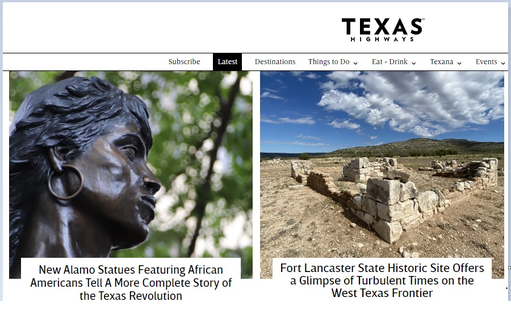
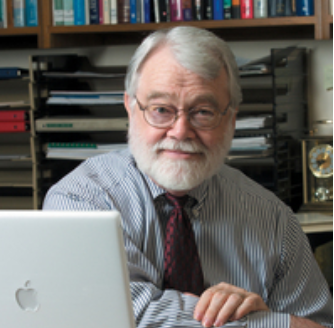
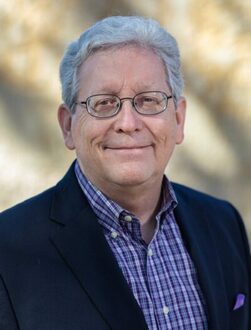
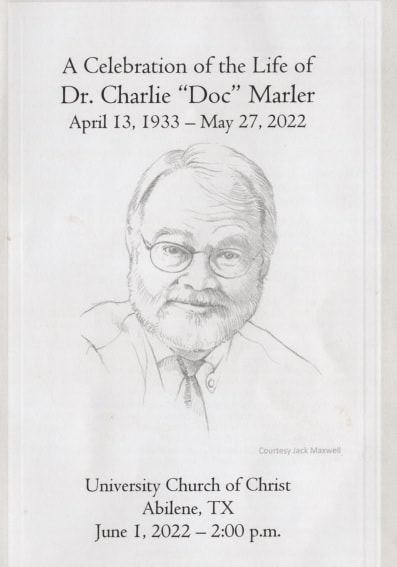
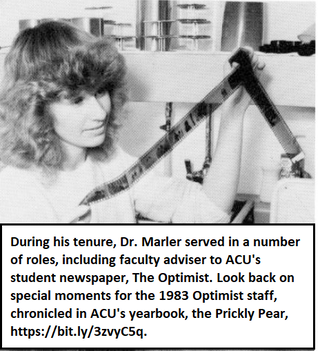
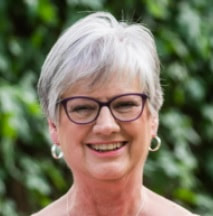
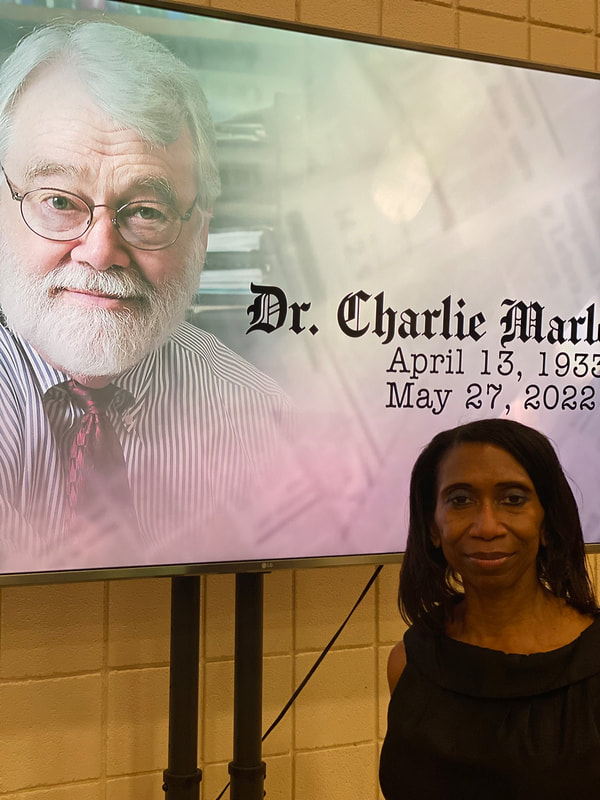
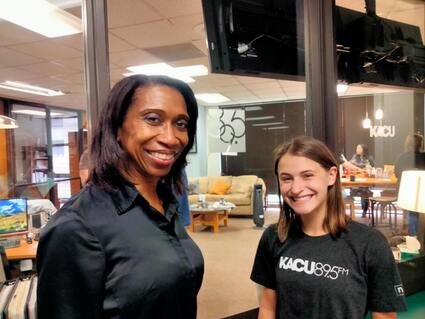

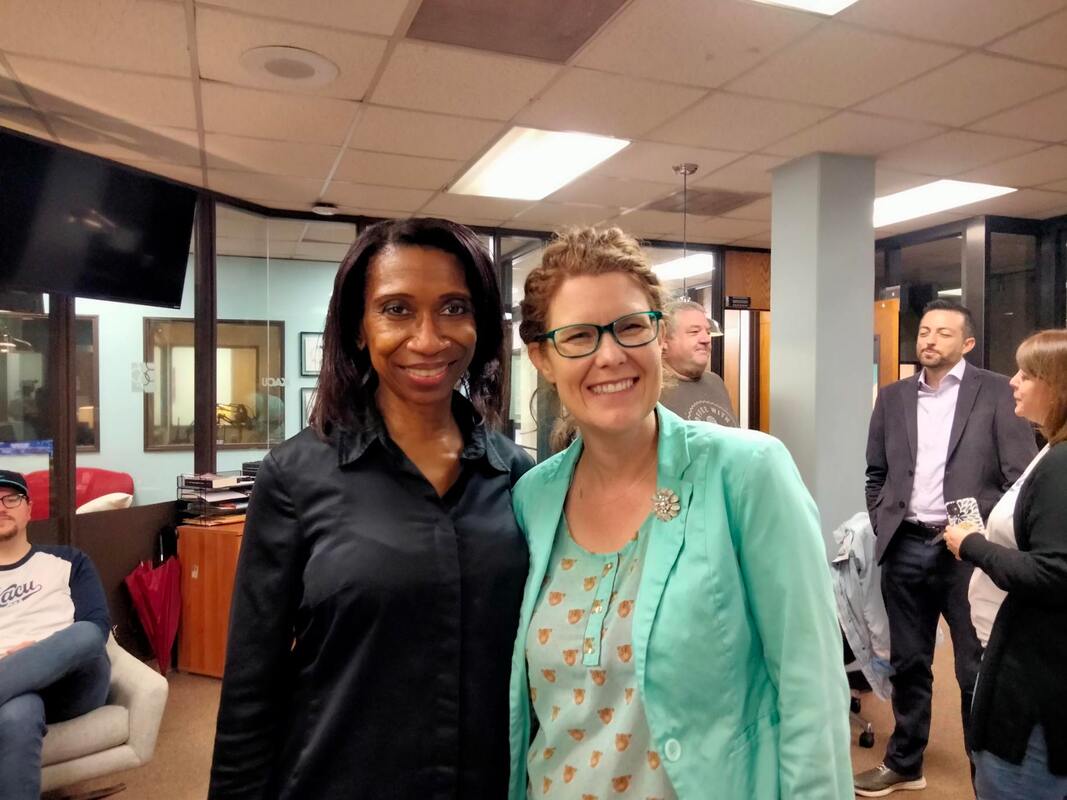
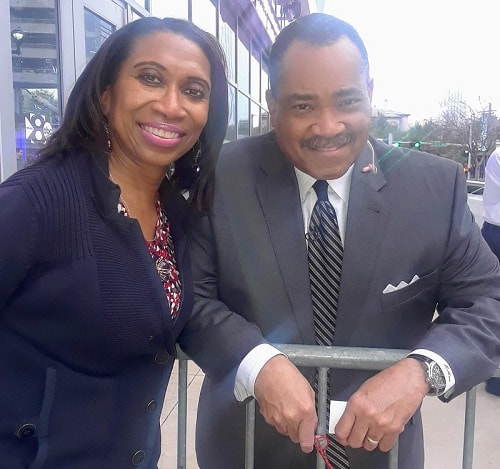
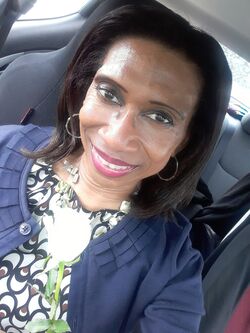
 RSS Feed
RSS Feed